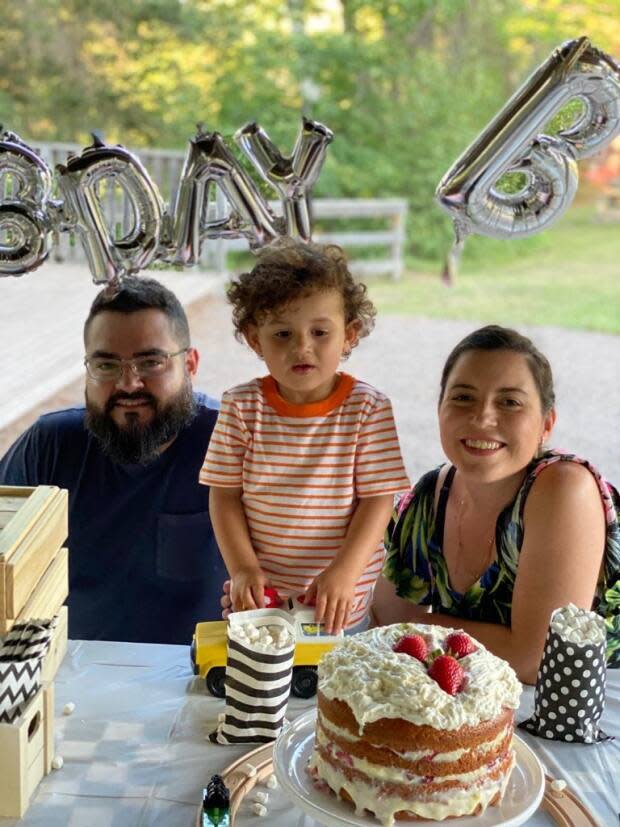Immigrants left in limbo as permit processing takes months
It was a situation Rayanne Ribas didn't expect to be in after immigrating to Canada. But in July, after months of living in a working-permit limbo, her husband, Amauri, fell ill and she found she didn't have many places to turn.
"I knew the surgery would be really expensive. But on the other hand, that was scary because we came to this country to have a better life and I was scared to lose my husband during this process."
Amauri needed emergency surgery to deal with a gallbladder infection. But because of a months-long wait for a work permit to be renewed, his medicare had expired, and if they went to the hospital, the Ribas would be faced with a big bill.
"You are not able to have a valid number and Medicare coverage. So what's the point? We're going to be here working, paying taxes, trying to live normally. And but if we got sick, we're not able to have any any help?... We are human beings. We might need some," Rayanne said.

The Ribas came to Moncton from Brazil in October 2019 under the Atlantic Immigration Pilot. In January, they had to apply for an extension of their work permit because Amauri's passport was due to expire. Rayanne got her extension in April. Amauri didn't. And when he had to have surgery in July, they were faced with a $12,000 hospital bill.
The Ribas are not alone.
Many immigrants in New Brunswick say their situations are being complicated by long wait times for the renewal of their work permits.
On its website, Immigration, Refugee and Citizenship Canada says right now the wait is approximately 158 days - and is due to Covid impacts. Many have been waiting several months.
In some cases, those delays mean jobs, medicare coverage, and access to other services are in jeopardy.
When a work permit expires, people fall under what's called "implied status". They are technically still able to work, but with an expired social insurance number it complicates things, including medicare.

"The challenge we're facing in New Brunswick is that our government systems and services are not equipped or familiar with implied status," said the executive director of the New Brunswick Multicultural Council, Alex Leblanc, "So services like medicare, our education system, employers, they're just not familiar with implied status and don't have mechanisms to recognize it."
The New Brunswick Multicultural Council estimates that there could be between 3,500 and 4,000 people living under implied status in the province.
"The problems have become really, very acute for certain people who don't have permanent status in Canada. And it's mostly invisible," said Janet Dench, executive director of the Canadian Council for Refugees.
"It's something that is going on below the surface and people probably don't realize that your neighbour or the person that you're crossing on the street is living in this kind of bizarre and painful semi-existence where their right here is not fully clear."
The Ribas' had to reapply several times for Amauri's renewed permit. It took eight months.
The Provincial Government said Thursday that it will step in and fill the gap.
"We're trying to figure out ways right now that we can actually reach those individuals (affected)," said Arlene Dunn, minister responsible for immigration." So if there's anybody that's been affected by this, we want to hear about it. We want to have some discussion with them. We want to make sure that we're aware of the situation. But they have our assurance that they won't have to worry in terms of paying for that (hospital bill). They will be covered."
Immigration, Refugees and Citizenship Canada responded to CBC's requests for an interview late Thursday night. In a statement saying it recognizes the difficult positions many people are in, and that it has taken some steps to help address the problem, including "extending the time a temporary resident has to restore their status after it expires and allowing them to work while their application is finalized" and "exempting in-Canada work permit applicants from having to provide biometrics as part of their application."


